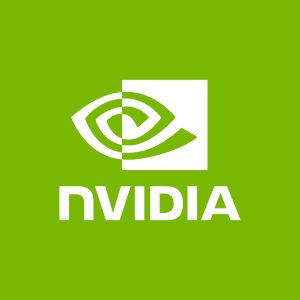HUNTSVILLE — A Huntsville business owner is among four people, including two Chinese nationals, charged with conspiracy to illegally export cutting-edge NVIDIA Graphics Processing Units, which have artificial intelligence (AI) applications, to China, announced Assistant Attorney General John A. Eisenberg for the Justice Department’s National Security Division and U.S. Attorney Gregory W. Kehoe for the Middle District of Florida.
According to the indictment, the military in the People’s Republic of China sought the chips for “weapons design and testing, including for weapons of mass destruction as well as in connection with the PRC’s development and deployment of advanced AI surveillance tools.” It added that China is developing supercomputing capabilities and intends to become “the world leader in AI by 2030.”
Brian Curtis Raymond, 46, was arrested Wednesday and appeared in U.S. District Court in Huntsville. He is the founder of the Huntsville AI infrastructure company Bitworks, according to his LinkedIn bio.

He is charged with conspiracy to violate the Export Control Reform Act, two counts of ECRA violations, one count of smuggling, conspiracy to commit money laundering and seven counts of money laundering.
Raymond faces 20 years per ECRA violation; 10 years per smuggling count; and 20 years per money laundering count.
The indictment describes Raymond as the CEO and sole owner of an unnamed distributor of U.S. technology products licensed to sell Nvidia GPUs.
However, according to his LinkedIn bio, Raymond operates Bitworks on Providence Main Street in Huntsville. He also identifies himself as the chief technology officer of Corvex, an Arlington, Va.-based AI cloud company, a role he listed as starting in October.
“Corvex had no part in the activities cited in the Department of Justice’s indictment,” a Corvex spokesman told Fortune. “The person in question is not an employee of Corvex. Previously a consultant to the company, he was transitioning into an employee role but that offer has been rescinded.”
Raymond did not respond to requests for comment.
Also arrested were Hon Ning Ho, 34, aka “Mathew Ho,” a U.S. citizen born in Hong Kong and residing in Tampa; Cham Li, 38, aka “Tony Li,” PRC national, of San Leandro, Calif.; and Jing Chen, 45, aka “Harry Chen,” of Tampa, a PRC national on F-1 nonimmigrant student visa.
Ho and Chen were arrested Wednesday and appeared in court in the Middle District of Florid. Li was also arrested Thursday and is scheduled to appear today in the Northern District of California.
“The indictment unsealed yesterday alleges a deliberate and deceptive effort to transship controlled NVIDIA GPUs to China by falsifying paperwork, creating fake contracts, and misleading U.S. authorities,” said John A. Eisenberg, assistant attorney general for National Security. “The National Security Division is committed to disrupting these kinds of black markets of sensitive U.S. technologies and holding accountable those who participate in this illicit trade.”
According to the indictment, from September 2023 to this month, Ho, Raymond, Li, and Chen illegally exported advanced GPUs to China through Malaysia and Thailand, the indictment charges.
As part of the conspiracy, the men used Janford Realtor, LLC — a Tampa-based company owned and controlled by Ho and Li — as a front to purchase and then illegally export controlled GPUs to the PRC. Despite its name, Janford Realtor, LLC, was never involved in any real estate transactions, the Justice Department said.
Raymond, through his company, allegedly supplied NVIDIA GPUs to Ho and others for illegal export to China as part of the conspiracy.
As further alleged in the indictment, the conspiracy encompassed four separate exports of NVIDIA GPUs to the PRC.
The first and second exports resulted in 400 NVIDIA A100 GPUs being exported to the PRC between October 2024 and January 2025.
The third and fourth exports to the PRC were disrupted by law enforcement and not completed. Those attempted exports related to 10 Hewlett Packard Enterprises supercomputers containing NVIDIA H100 GPUs and 50 separate NVIDIA H200 GPUs.
Despite knowing that licenses were required to export these items to the PRC, none of the conspirators ever sought or obtained a license for any of these exports. Instead, they lied about the intended destination of the GPUs to evade U.S. export controls. The indictment further alleges that the conspirators received over $3.89 million in wire transfers from China to fund their scheme.
According to the indictment, the United States will also seek forfeiture of 50 NVIDIA H200 GPUs, which are property constituting an item or technology that was intended to be exported unlawfully.











